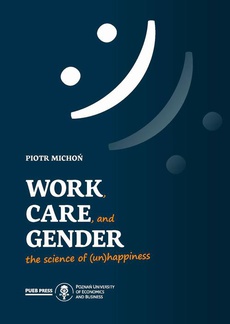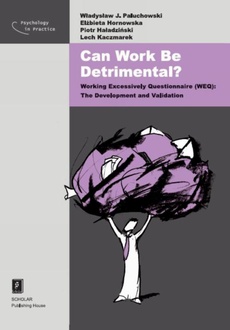POLECAMY

-24%
Work Safety Culture: on the Edge of Chaos
Wydawca:
Format:
pdf, ibuk
Given the constantly shifting dynamics of change, the ever-increasing complexity of our environment, and its growing unpredictability, there is a pressing need to explore new approaches and perhaps even develop a fresh philosophy for conceptualizing safety culture. These circumstances have their silver lining because they present an opportunity to break free from habit — the greatest enemy of progress.
In her previous book on safety culture, the author assumed that safety culture determines the quality of life of citizens, which, in turn, makes the safety culture one of the basic conditions of national security in the long term. In this manner, the research topic was presented along with a critical reflection on the cognitive presuppositions forming the knowledge about the culture of occupational safety. The result was the proposal of a model of sustainable safety culture. In the presented model, the concept of sustainable occupational safety was intended to take into account the socio-technical and economic specificity of the work environment in Poland, and its aim was to integrate the area of safety research with the idea of sustainability.
Four years after the above-mentioned publication — a period abounding in unprecedented global events, in terms of scale and scope — the need for substantive verification of the proposed model of sustainable occupational safety arose. From the research perspective of safety culture, safety is a multifaceted concept and it most certainly goes beyond the mere absence of threats or the effects of risky behavior. It is the result of incorporating subjective and objective elements and considering organizational, environmental, political, and economic factors. While individual components should refer to the unit, they should be analyzed through a broad research perspective. Therefore, the present study uses a systemic approach, recognizing its superiority over the traditional reductionist approach (...).
| Rok wydania | 2023 |
|---|---|
| Liczba stron | 197 |
| Kategoria | Zarządzanie, organizacja, strategie |
| Wydawca | Wydawnictwo Naukowe E Book |
| ISBN-13 | 978-83-67907-00-2 |
| Numer wydania | 1 |
| Język publikacji | angielski |
| Informacja o sprzedawcy | ePWN sp. z o.o. |
Ciekawe propozycje
























